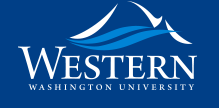Description
This session will introduce participants to different types of touch therapies, describe the evidence for these non-pharmacological interventions in promoting comfort and relaxation, and discuss the role of these modalities in symptom management and quality of life. The goal of this session is to support organizations in shifting from a typical barrier-driven attitude [“this cannot be done at our organization”] into a solution-driven attitude [“how can we get this done at our organization.”] The session will emphasize family caregivers and volunteer engagement, staff training, sustainable cost models, as well as appropriateness of modalities for diverse settings.
At the end of the session, participants will be able to:
- Describe the effects of touch therapies on the patient and family experience
- Describe the role of touch therapies in providing comfort, enhancing symptom management and quality of life, and promoting healing relationships.
- Identify types of touch therapies suitable for various environments/populations and how these modalities may be delivered by staff, volunteers and family caregivers.
- Explore strategies to implement and/or extend implementation of these modalities across their own facilities
Document Type
PowerPoint Presentation
Start Date
14-5-2016 1:15 PM
End Date
14-5-2016 2:30 PM
Genre/Form
lectures
Subjects – Topical (LCSH)
Touch--Therapeutic use; Palliative treatment; Integrative medicine
Type
Text
Language
English
Format
application/pdf
Keywords
Integrative care, Touch therapies, Caregiving
Included in
“It Makes You Feel That You Are Not Just a Thing - You Are a Person”: The Role of Touch Therapies in Enhancing the Patient Experience
This session will introduce participants to different types of touch therapies, describe the evidence for these non-pharmacological interventions in promoting comfort and relaxation, and discuss the role of these modalities in symptom management and quality of life. The goal of this session is to support organizations in shifting from a typical barrier-driven attitude [“this cannot be done at our organization”] into a solution-driven attitude [“how can we get this done at our organization.”] The session will emphasize family caregivers and volunteer engagement, staff training, sustainable cost models, as well as appropriateness of modalities for diverse settings.
At the end of the session, participants will be able to:
- Describe the effects of touch therapies on the patient and family experience
- Describe the role of touch therapies in providing comfort, enhancing symptom management and quality of life, and promoting healing relationships.
- Identify types of touch therapies suitable for various environments/populations and how these modalities may be delivered by staff, volunteers and family caregivers.
- Explore strategies to implement and/or extend implementation of these modalities across their own facilities

